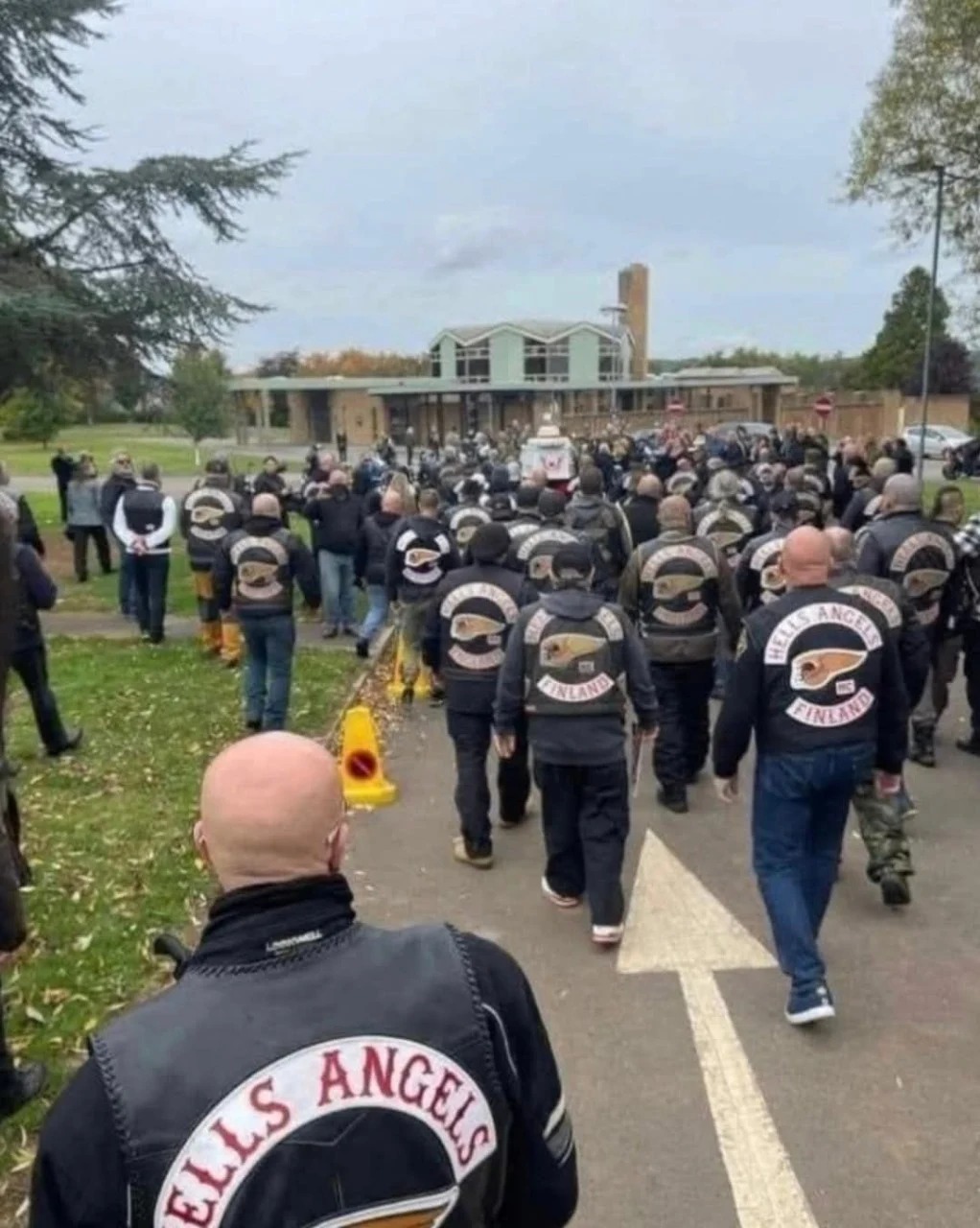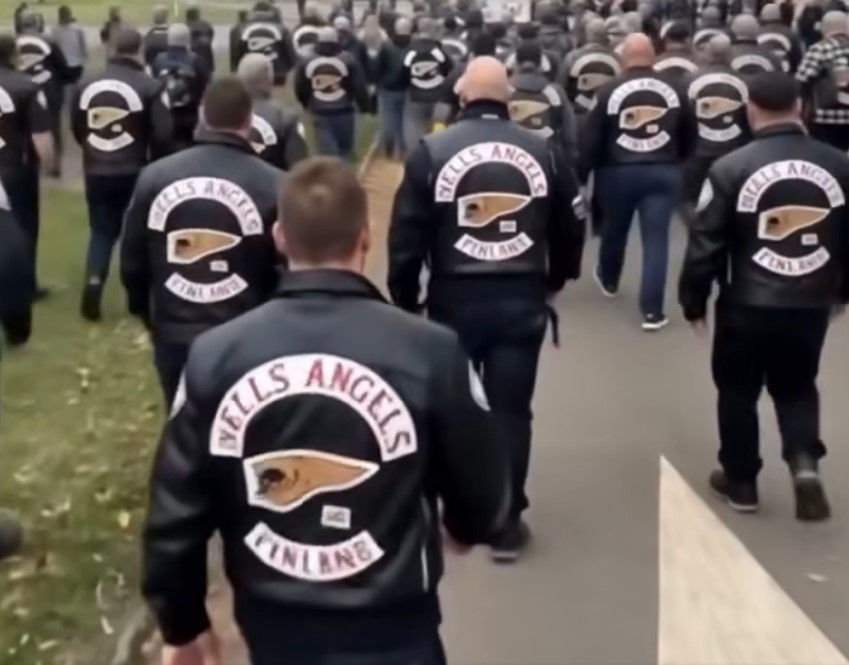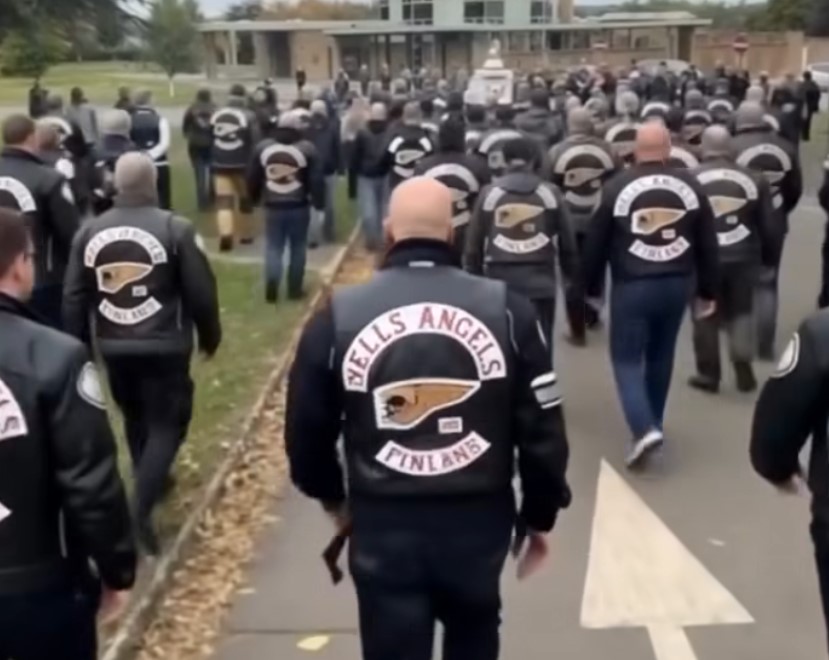No one expected a line of fifty motorcycles to show up at Mikey’s funeral—least of all the four classmates who had tormented him.
For 26 years, I worked as a school janitor. I was used to keeping my emotions locked away. But when those bikes rolled in that morning, their engines rumbling through the ground and into my chest, I finally broke.
My son, Mikey, was just 14 when he took his own life. He left behind a note, carefully written, listing the names of four classmates who had bullied him endlessly. He didn’t ask for revenge—just for someone to understand his pain.
The police called it “sad but not criminal.” The school principal gave us nothing more than “thoughts and prayers” and even held the funeral during class hours, claiming it was “to avoid problems.”
I felt invisible. Powerless.
A Call That Changed Everything

Days later, Sam—a tall biker I knew from a nearby gas station—stopped by. His nephew had suffered the same fate. He handed me a card.
“If you want us there,” he said, “no trouble, just support.”
At first, I didn’t call. I didn’t know what I needed. But the night before the funeral, I found Mikey’s journal. It was filled with pain, drawings, and cruel words scribbled by classmates. That’s when I made the call.
“We’re expecting around thirty people,” I told Sam. “No classmates.”
“They’re coming with families?” he asked.
“Yes,” I replied.
“We’ll be there at nine,” he said. “You won’t worry.”
The next morning, fifty bikers arrived—more than I ever expected. They formed a silent, protective line outside the chapel.
When the funeral director asked if security should be called, I said only, “They’re invited.”
A Moment of Reckoning

When the four boys who bullied Mikey arrived with their parents, their faces turned pale. Sam stepped forward—not with fists, but with presence.
“We’re not here for revenge,” he said calmly. “We’re here for Mikey. For his father. For every kid who’s ever cried for help and got silence in return.”
Their parents didn’t speak. They didn’t need to. The weight of what they allowed to happen was already settling on their shoulders.
Inside the chapel, I stood among friends, family, neighbors, teachers—and fifty bikers standing shoulder to shoulder. My heart beat hard in my chest as I stepped to the podium.
“My son was kind,” I said. “Too kind for a world like this.”
He thought if he stayed quiet, the cruelty would stop. It didn’t.
“I told him once, ‘You don’t have to be loud to be strong.’ But maybe he needed someone to be loud for him.”
I nodded to the bikers. “Today, he got that.”
When Apologies Come Too Late

After the service, no one rushed to leave. Bikers placed photos, drawings, and flowers on a small memorial table. A picture of Mikey hugging our old dog Rusty sat in the center.
Then, something unexpected happened.
One of the boys—Jared—stepped forward. His parents tried to stop him, but he brushed them off.
“I don’t expect forgiveness,” he said, pulling something from his jacket. “But Mikey gave me this once. I didn’t understand it then.”
It was a sketch Mikey had drawn—of the four boys as superheroes. No jokes. No insults. Just pure, imaginative kindness.
“He still saw good in us,” Jared said, his voice trembling.
The other boys followed, each placing something meaningful at the table. A note. A toy. A ribbon. No one told them to. They just did.
Outside, the bikers remained. Some hugged strangers. Some cried behind sunglasses. One woman whispered, “We lost our daughter last year. No one showed up. Not like this. Your son mattered.”
From Grief to Action: Mikey’s Legacy Lives On
That night, Sam called.
“You good?” he asked.
“Better than yesterday,” I replied.
“We’re starting something,” he said. “A support group for bullied kids. In Mikey’s name. We raised enough for the first year of counseling already.”
I was speechless.
A week later, we held a school vigil. The same principal who once looked away now stood beside the school board. Not out of fear—out of shame.
Sam held Mikey’s superhero sketch under candlelight. Jared spoke again, promising to do better. To be better.
Two weeks later, Mikey’s name appeared on a mural near the school entrance. Not just a tribute—but a promise. That no child would be forgotten again. That silence would never again be the response to pain.
A New Role, A New Mission
Today, I still clean floors at school. But now I also sit in classrooms. I speak to kids. I listen to the ones who think they’re invisible.
Sometimes, I carry Mikey’s journal in my pocket, just to remind myself why I keep going.
I never wanted to be a voice. But grief makes you strong in ways you never imagined.
And sometimes, it takes fifty rumbling motorcycles to tell the world that a quiet boy mattered more than anyone ever knew.